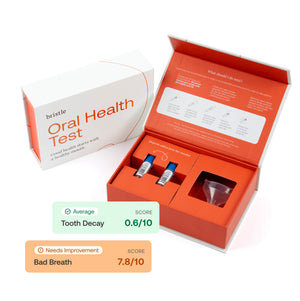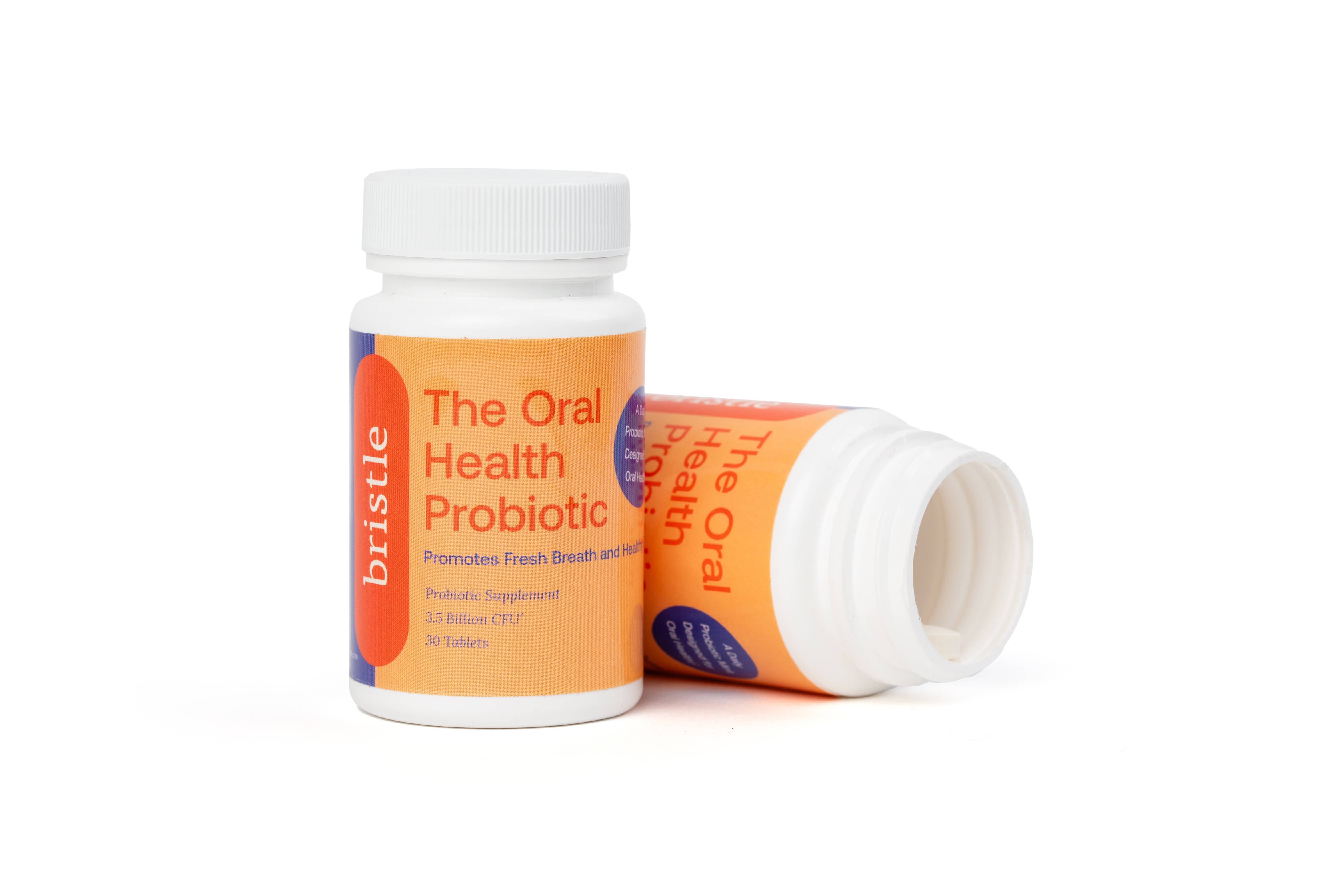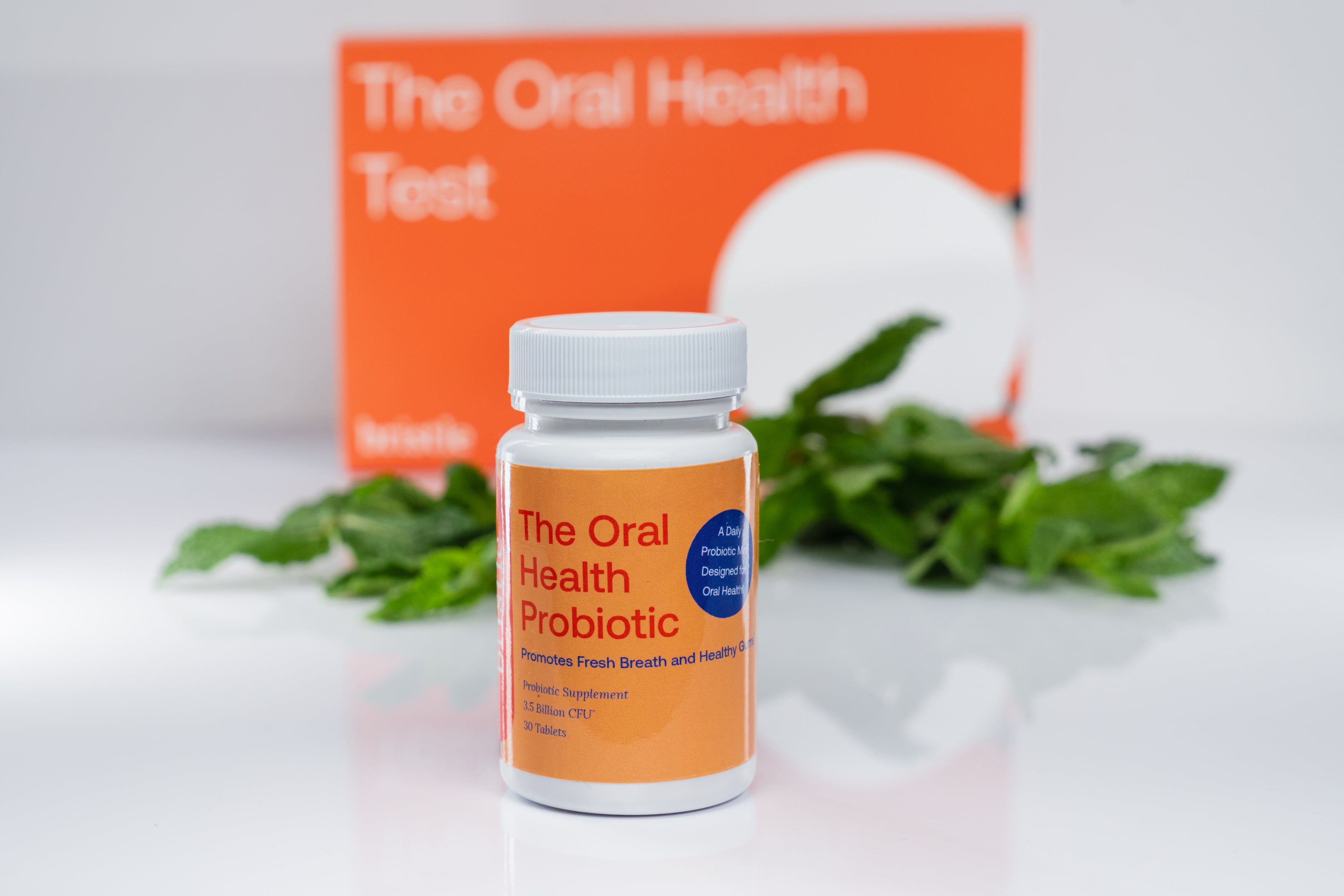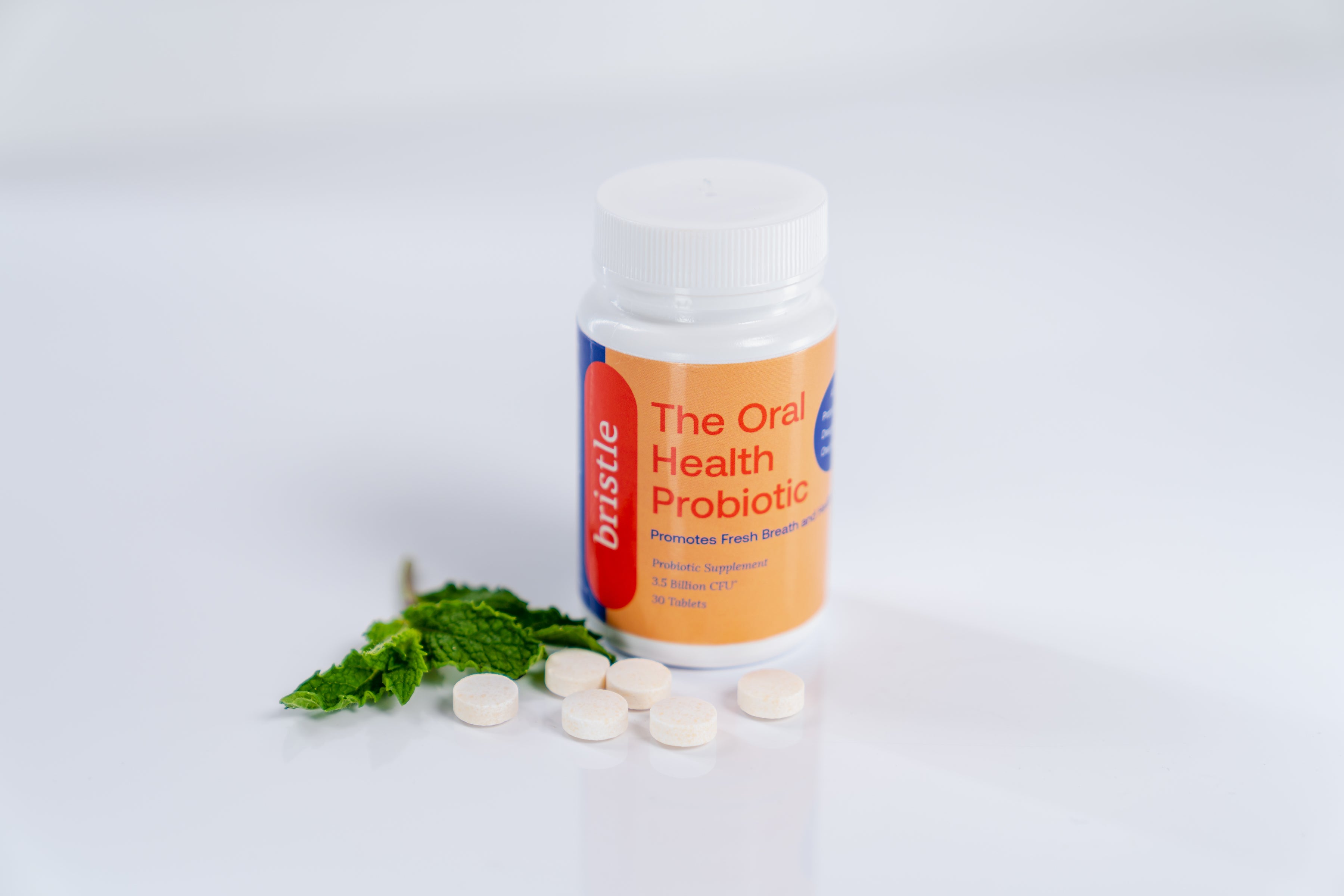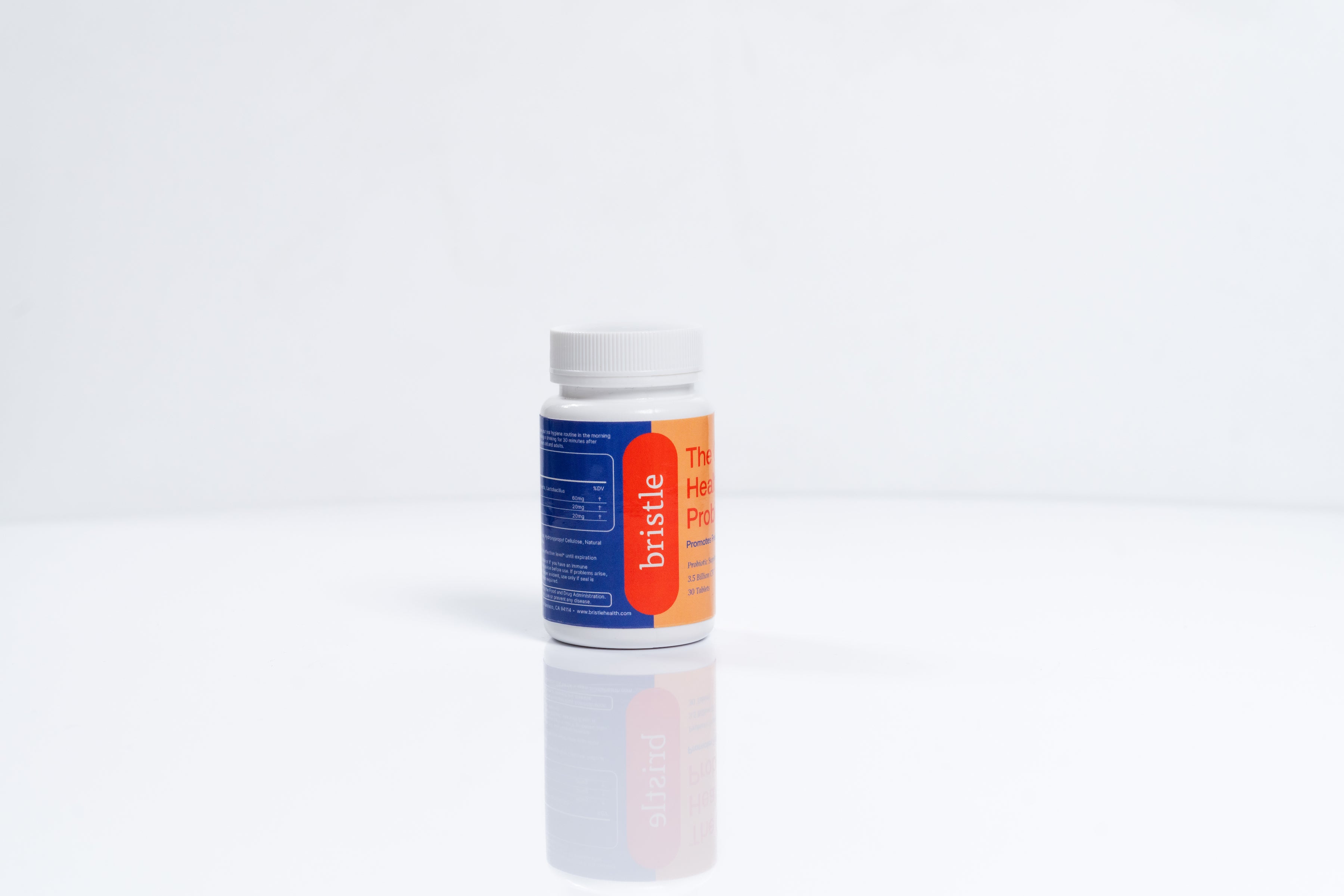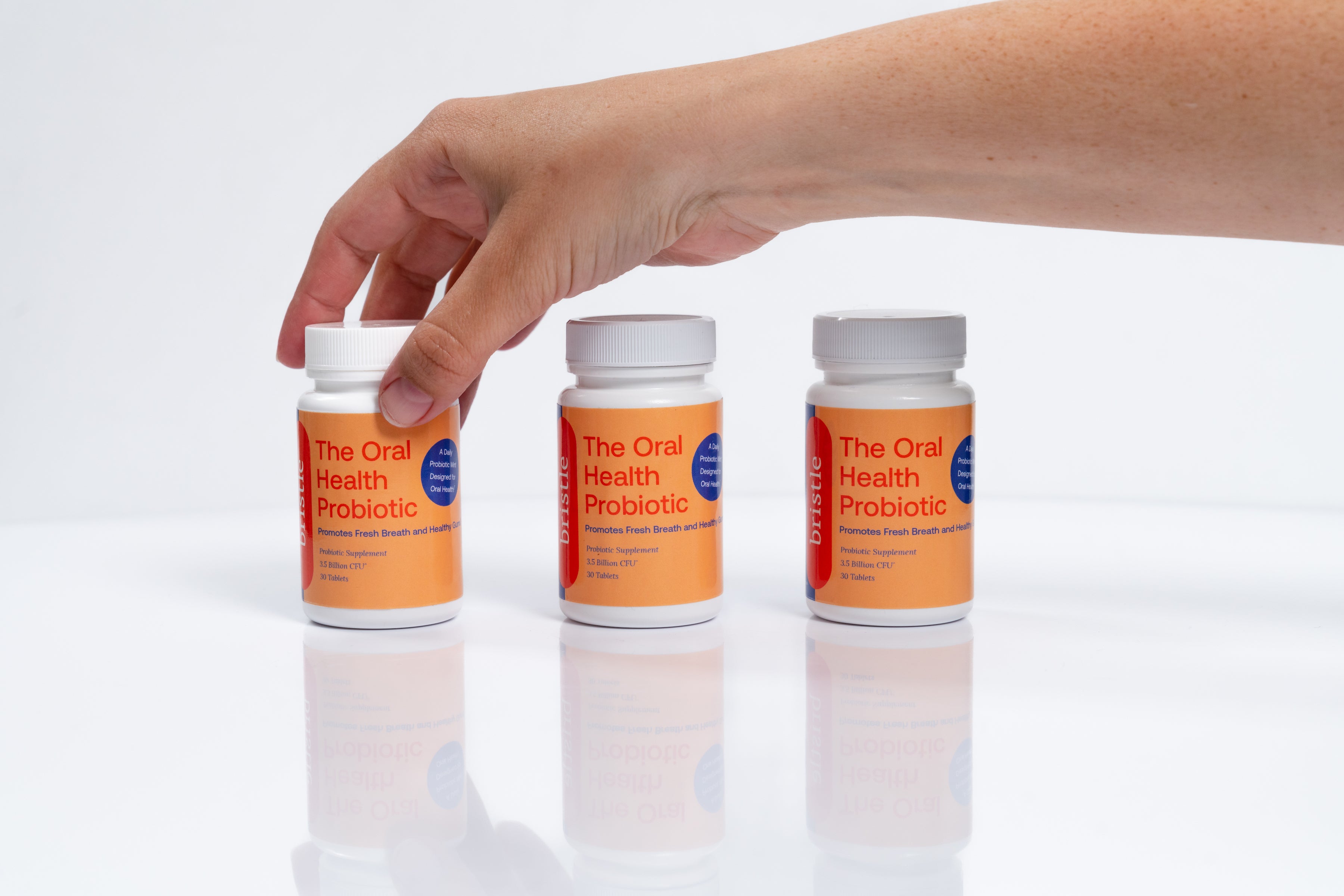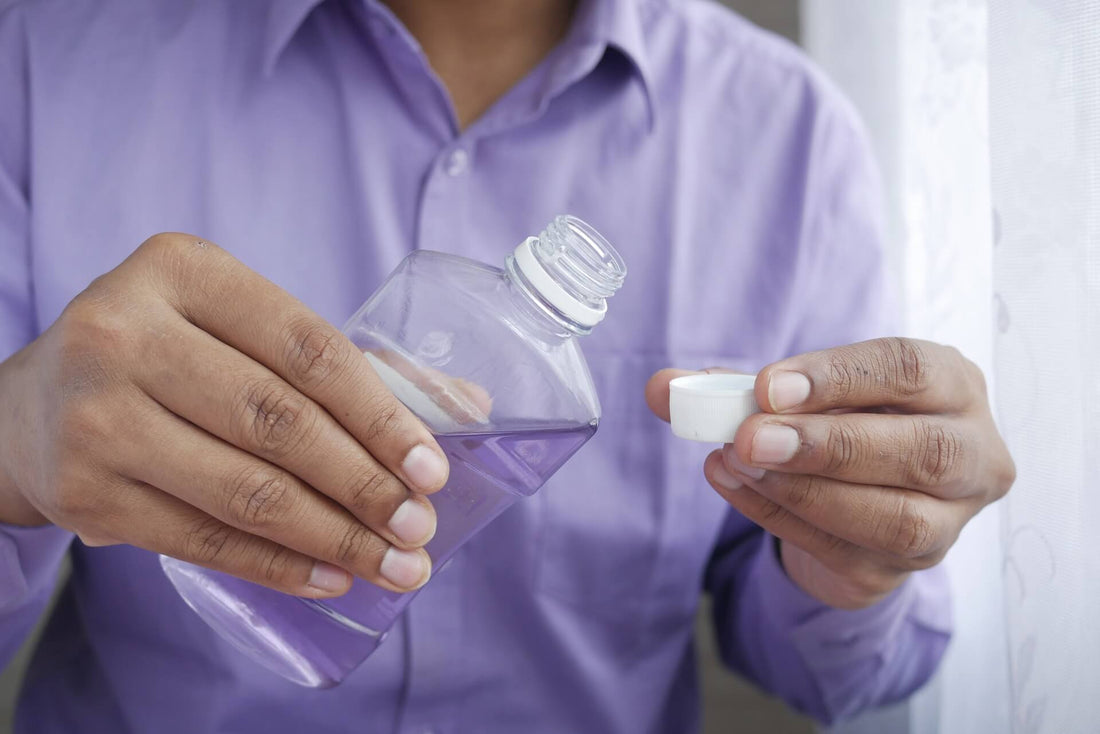In this review we’ll cover our research into dental probiotics for oral health, including what we know about their efficacy, mechanism of action, and who they are for.
What’s an oral probiotic or dental probiotic?
Probiotics are live beneficial bacteria that provide health benefits. Typically, probiotics have been proposed to restore and improve health through modulating the microbiome. This review will focus on the use of oral probiotics (also referred to as dental probiotics) for oral health.
One important note: the bacterial strains often used to promote gut health are not the same ones that have been shown to improve oral health. The bacteria that colonize the mouth and gut are distinct, though research has shown that bacteria of the mouth can translocate to the gut and cause inflammation. Some of these dental probiotics have been shown to reduce the risk of cavities, permanently reduce bad breath, and reduce symptoms and progression of gum disease. However, many oral probiotic strains are still being investigated, with only preliminary research demonstrating little to no efficacy. So which one should you use? Read more to find out, but first, a little background about the oral microbiome and oral health.
How oral probiotics and dental probiotics affect oral health
Oral health is heavily influenced by the oral microbiome. Specific bacterial species that colonize the tooth surface, and create acid by fermenting sugar can lead to cavities. Other bacteria have been shown to cause gum disease, by creating pathogenic plaque at the gumline, eventually causing irreversible bone loss.
Oral probiotics and dental probiotics have been researched through dozens of clinical trials, which have demonstrated the efficacy of oral bacterial species in reducing halitosis, symptoms of gum disease, and cavities.
The best oral probiotics for bad breath
The strains that have been shown to be most effective at reducing bad breath are Streptococcus salivarius K12 and M18, and Lactobacillus reuteri DSM 17938 and ATCC PTA 5289. However, for people with high levels of S. salivarius in their microbiome, S. salivarius K12 and M18 may be unable to colonize and improve bad breath.
The best oral probiotics for gum disease
In summary, the strains that have been shown to improve gum inflammation are L. reuteri DSM 17938 and ATCC PTA 5289. In clinical trials, these strains have demonstrated an improvement by reducing plaque at the gums, reducing bleeding, and reducing pocket depth.
The best oral probiotics for cavities
Lactobacillus paracasei SD1 has been shown to reduce the progression of cavities, and may improve remineralization of incipient caries. L. reuteri DSM 17938 and ATCC PTA 5289 may reduce the incidence of cavities in children, but little evidence to date exists to support their use in cavities prevention for adults. These probiotics may have more beneficial effects in cases for people with high abundance of Streptococcus mutans. Research is still being done to determine their effects on other bacterial species like Streptococcus sobrinus or Scardovia wiggsiae.
Do dental probiotics work?
Many dental probiotics have been through clinical studies that demonstrate clinical efficacy in reducing bad breath, symptoms of gingivitis, and even preventing cavities. However, not all dental probiotics have the same strains of bacteria that have been shown to work. Read more below to find out why!
Are dental probiotics safe?
Clinical studies have shown that the dental probiotics mentioned in this article are safe, with no reported adverse events.
How long does it take dental probiotics to work?
Many of these studies demonstrated that effects on the oral microbiome take weeks. For instance, there was no difference in Streptococcus mutans (the pathogenic species that causes cavities) levels after administration of L. paracasei SD1 for 2 weeks, but 3 weeks to 4 weeks saw significant improvement in S. mutans levels.
How can I make sure oral probiotics will see the most effect?
Several studies showed that oral S. salivarius K12 and M18 had the most beneficial effect on halitosis after first using an oral antiseptic mouthrinse for 3 to 7 days. Studies suggest that wiping out the existing microbiome may be important for some of these probiotics to take effect. However, by contrast, effects of L. paracasei and L. reuteri demonstrated significant effects even without first wiping out the oral microbiome.
This may suggest that there are species and strain-dependent effects to take into consideration for each probiotic. In general, you may see improvement after 3-4 weeks of taking an oral probiotic, but if you don’t, you might want to reset your existing oral microbiome with antiseptic mouthwash for a week before taking the oral probiotics.
Finally, everyone’s existing oral microbiome is different, and the effects you may see from taking oral probiotics depend on the existing oral microbiome. Oral microbiome testing helps reveal which probiotics may work for you, or if you need antimicrobial mouthwash to first reset your microbiome.
Now, let’s take a deep dive into specific oral probiotics, their evidence, and their potential mechanisms of action.
Streptococcus salivarius oral probiotics
Summary: Moderate evidence that oral probiotic strains K12 and M18 of S. salivarius are effective at reducing oral volatile sulfur compounds (VSCs) and halitosis by reducing growth of periodontal pathogens. S. salivarius is found naturallyin lower levels in people with bad breath than healthy people. Boosting S. salivarius by oral probiotic may help people with low levels of S. salivarius.
S. salivarius and bad breath (halitosis)
S. salivarius is one of the most well studied probiotic species for halitosis. S. salivarius is a commensal bacterial species associated with health. Two strains, K12 and M18, in particular have been shown to exhibit long-lasting reduction in parameters of halitosis.
In one clinical trial, a 3-day regimen of chlorhexidine (CHX) mouth rinsing, followed by 4 week use of lozenges containing S. salivarius K12 reduced VSCs even after pausing probiotic administration. This trial was the first of its kind to demonstrate that the oral microbiome can be eradicated and recolonized with seed strains to improve oral health. Another similar study corroborated these findings, demonstrating that in patients with braces and halitosis, a 1 month administration of S. salivarius lozenges twice daily reduced VSC levels, even 3 months after halting probiotic usage.
Furthermore, one in vitro study showed that S. salivarius K12 was able to reduce growth of pathogens such as P. gingivalis and F. nucleatum. Though these findings should be taken with a grain of salt as they were done on a lab bench rather than in a person.
Finally, one study showed that S. salivarius K12 administration only reduced VSCs in a subpopulation of patients, and the authors speculate that the effect was driven by differences between the native oral microbiome of those patients. This foundational research paves the way for personalized oral probiotics to improve and reduce halitosis. These findings also show that microbiome testing is likely necessary to determine whether S. salivarius will be effective at reducing halitosis or periodontal parameters.
Potential mechanism of action
S. salivarius is capable of producing potent anti-bacterial proteins called bacteriocins that inhibit the growth of other bacterial species. Additionally, in vitro studies have also shown that S. salivarius interacts directly with the gingival epithelium, secretes a small molecule that can reduce inflammation, and supports immune homeostasis.
Best S. salivarius oral probiotics
The best S. salivarius probiotics we have tested are SUPER TEETH's Oral Probiotic and Prebiotic (contains M18, K12 and L. Reuteri) and BLIS Probiotics' Teeth & Gums Kit (M18) and Fresh Breath Kit(K12) - which also includes a tongue cleaner for helping treat bad breath.
We also released our own Oral Health Probiotic that contains 6 evidence-backed strains of bacteria including K12, M18 and L. reuteri.
We hand-picked each strain based on clinical evidence & our oral microbiome data to tackle the most common types of imbalances we find.
Lactobacillus species oral probiotics
Summary: Strong evidence that Lactobacillus reuteri is effective at reducing symptoms of gum disease and halitosis, and may also reduce caries incidence and progression.
L. reuteri and gum disease
One study had 60 participants with severe periodontitis take a cocktail of L. reuteri, L. salivarius, and L. acidophilus as a once daily lozenge for 90 days, and found that halitosis parameters and symptoms were significantly reduced at the end of the study. Narrowing the scope of probiotic, another trial with 30 patients showed that administration of L. reuteri alone for 42 days reduced gingival bleeding, plaque index, and the abundance of pathogens that are responsible for periodontal disease such as P. gingivalis.
One study looked at 30 patients with severe periodontal disease, and showed that patients who took an oral probiotic lozenge with L. reuteri twice per day after a deep cleaning had significantly improved measures of gum disease, like gum attachment and pocket depth, compared to people on placebo. Additionally, patients on oral probiotic L. reuteri had lower levels of P. gingivalis compared to placebo. Another followup study with a similar cohort of patients with periodontal disease demonstrated that oral probiotic L. reuteri improved measures of gum disease, but also reduced levels of inflammatory markers such as MMP-8.
L. reuteri and bad breath (halitosis)
In another study, two strains of L. reuteri (DSM 17938 and ATCC PTA 5289) were taken in a chewing gum twice per day for 14 days. Bad breath was significantly reduced in the test group compared to the control group taking placebo gum.
L. reuteri and cavities
Dental probiotic L. reuteri was also tested for activity in protecting against cavities. In a first study, participants were either given a lozenge with L. reuteri or placebo. Researchers looked at levels of lactic acid in saliva, and found that participants who took L. reuteri had significantly lower levels of lactic acid in their saliva. In a second study, 113 adolescent participants were given daily supplementation of L. reuteri strain ATCC 55730 or placebo over the course of one year. They found that participants who took dental probiotic L. reuteri had significantly less tooth decay than those who only took placebo.
Potential mechanism of action of oral probiotic L. reuteri
L. reuteri creates a potent anti-microbial peptide called Reuterin that can kill other bacterial species. It may reduce levels of S. mutans and anaerobic pathogens such as those that cause periodontal disease. L. reuteri also modulates the immune system, and has activity in the gut where it reduces levels of pro-inflammatory cytokines such as TNF-a and IL-8.
Best L. reuteri oral probiotics
The best S. salivarius probiotics we have tested are the Bristle Oral Health Probiotic, SUPER TEETH's Probiotic and Prebiotic (contains S. salivarius M18, K12 and L. Reuteri) and Replenish the Good Oral Probiotic (contains S. salivarius M18, K12, L. Reuteri).
Lactobacillus salivarius oral probiotic
Summary: insufficient evidence that oral L. salivarius administration reduces cavities.
L. salivarius and cavities
In one study, administration of L. salivarius by lozenge for two weeks led to a significant reduction in S. mutans levels. Additionally, another study showed that biofilms containing L. salivarius had much lower levels of S. mutans, demonstrating that L. salivarius may directly inhibit S. mutans.
L. salivarius and gum disease
In a 51 patient study of patients with periodontal disease, administration of oral L. salivarius reduced bleeding on probing, and pocket depth compared to placebo.
L. paracasei oral probiotic
Summary: strong evidence that oral L. paracasei SD1 reduces levels of S. mutans, and incidence of caries. L. paracasei SD1 may improve remineralization of incipient caries, though the current evidence is weak.
L. paracasei and cavities
In a 6 month study of 122 children, participants taking L. paracasei SD1 via powder had significantly reduced levels of S. mutans, and fewer cavities. In a similar shorter study with 124 participants for 3 months, similar results were found. In a third study with 487 adolescents, L. paracasei via milk-powder moderately reduced new caries, but significantly reduced progression of caries, and even led to increased remineralization of existing incipient caries. Finally, in a study of 40 adults, L. paracasei SD1 daily for 4 weeks was sufficient to see significant reduction in S. mutans.
Strikingly a separate study using.a different strain of L. paracasei (F19) saw no effect on caries. But administration of L. paracasei GMNL-33 reduced S. mutans levels after 3 weeks. These results may demonstrate strain-specific effects of L. paracasei on the oral microbiome and disease.
Do dental probiotics work?
Oral probiotics and dental probiotics have been shown to improve outcomes of oral health, and reduce harmful bacterial pathogens that cause cavities, gum disease, and bad breath. The effects of oral probiotics may be dependent on the existing oral microbiome. Oral probiotics normally take between 3-4 weeks before noticing an effect.
Want to learn more about your oral bacteria and oral health? Test your oral microbiome with the Bristle Oral Health test.

